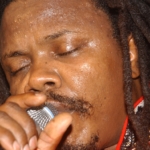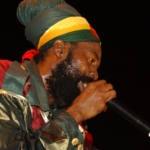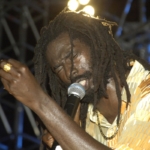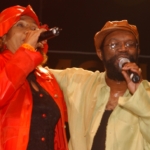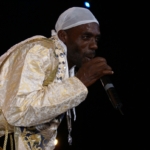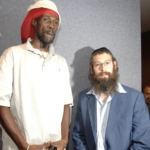
If there was ever man whose life was filled with the wild winds of emotions, good and bad, it was Peter Tosh. This was a man who never doubted his passion for being the Voice of the poor and repressed. He manifested it regularly and without any foggy ‘Feel Good’ language. To say this got the man in trouble more than once is an understatement. Basically Peter was unhappy with the world and wanted to change it.
Winston Hubert MsIntosh was born in Church Lincoln, Westmoreland on the island of Jamaica. Fathered by a Savanna-la-Mar preacher named James McIntosh, Peter was just one of the many children his father had sired and then totally neglected. Neither his father nor his mother, Alvera Coke, took any responsibility for him.
He was raised by his aunt in Savanna-la-Mar. Once Peter was asked if the aunt who raised him had a lot of influence in his life, to which Tosh responded: “No. No. Never. See, I was three years in size, but fifty years old in the mind. Because I was born with matured mind, and born with a concept of creativity, and any time there’s a controversy within me, it created an inner conflict.”
Peter was never at a loss for words or shy to express his opinion. And thank JAH he did for we may otherwise have missed out on a great artist with an important message.
When you study Peter it does not take long for you to realize how much of his genius was his inner turmoil. Being raised underprivileged and neglected he understood at a gut level what it meant to be poor. He defines the Rasta warrior with his singing of “Get Up, Stand Up,” which he practiced and preached all the time. Tosh was most definitely the passionate embodiment of the Wailers, a group so filled with passion it’s hard to imagine one being more temperamental than the other, but there is little doubt that Peter was the most zealous. He proved it all the time.
If the Wailers were rebels, it was Peter who made the concept whole without apology. He made the term ‘rude boy’ seem tame. As outspoken as he was, he was incredibly unpredictable. Chris Blackwell of Island Records said Peter was the hardest Wailer to manage because he changed his mind every day as opposed to Bunny Wailer, also a stubborn man, who simply answered ‘no’ to everything. If one thinks about it, managing all three of the Wailers must have been like trying to control a fire with gasoline. You can call them stubborn and angry, but I like to refer to them as principled and moral – Bob, Bunny and Peter. Mr. Tosh cared more about this virtue than fame and money. His legacy proves that.
Peter was also a very troubled man in many ways. Often in trouble with the law, busted for possession of pot, beat up by the police more than once, challenging authority at very turn and really raising hell with the “shitstem.” A term he invented for the “system.” He loved this play on words. A rather rebellious poet if you ask me. He said in an interview about Chris Blackwell, “Chris Whiteworst. You talk about Blackwell, what was well with him? So me call him every time me see him, ‘what happen whitewell, what happen Blackwell?” This type of humor is legendary with Peter. I’m sure Mr. Blackwell looks back on it as a part of Peter’s great genius.
Another moment of Tosh’s style of rebellion took place at the famous 1976 One Love Concert. Jamaica was experiencing a political civil war and the huge concert was arranged with the hope of resolving the violence. The organizers of this event got the biggest acts in reggae music to agree to perform. Included in this group was Peter Tosh. Peter took the opportunity to lecture the audience, which included Mr. Michael Manley himself, about the injustice of the Jamaican ‘shitstem’. “Me glad all the Prime Minister is here and the Minister of Opposition and members of Parliament. We can’t make the little pirate dem come here and rob up the resources for the country. Because that is what dem been doing a long bloodbath time…I am not a politician but I suffer the consequences.”
You cannot let Tosh’s rebel ways detract from his outstanding performance and musical skills. Bunny Wailer believed him to be the better on stage than Bob. And in the studio Tosh was an equal collaborator. His music went on to become some of the best reggae ever recorded. He carried his load as an artist and somehow remained true to his Rasta convictions.
‘No compromise’ was the way for all three Wailers, but it was Peter who burned more brightly than the others. The rifle shaped guitar he had built for his 1983 European tour made that clear. Concerning his newly fashioned guitar, Peter had this to say: “This guitar is firing shots at all them devil disciples. Music is my weapon to fight against apartheid, nuclear war and those gang-jah criminals.” Making the guitar gun a bit more ironic is the fact that Tosh was himself gunned downed; murdered in a botched robbery three years later.
All of his unique characteristics, along with his masterful music, separated Peter from his peers. Peter always let his feelings be known whether you liked it or not. His inconsistent manner made him hard to manage or befriend, but when it came to his beliefs there was nothing inconsistent about Peter Tosh.
I imagine he minced no words when Peter met the lord.

